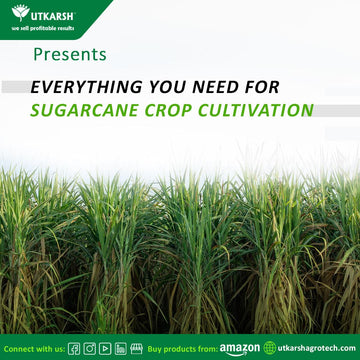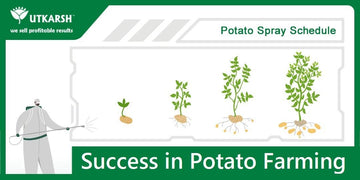
Coconut Farming: An Introduction
Coconut farming plays a significant part in the economy of India. Aside from the significance of copra and coconut oil which are generally utilized in the assembling of cleansers, hair oil, beauty care products, and other modern items, its husk is a source of fibre that upholds a sizable coir industry.
The delicate nut supplies coconut water, a well-known refreshment drink; with health benefits which is worth a multi-crore business everywhere in India. Virgin coconut oil (VCO), extricated from new and fresh coconut portions with next to no synthetic chemicals is plentiful in nutrients, minerals, and anti-oxidants, hence making it the mother, of all oils.
Climatic conditions requirements
The coconut palm is found to develop under changing climatic circumstances. It is basically a tropical plant growing generally between 20 N 20 S latitudes. In any case, precipitation of around 2000 mm each year, well distributed all through, is great for quality growth and development along with maximum production.
Soil conditions requirements
Coconut farming is performed under various soil types, for example, loamy, laterite, seaside sandy, alluvial, clayey, and recovered soils of the muddy marshes.
The ideal soil conditions for better development of the palm are planned drainage, great water-holding limit, the presence of water table inside 3m, and also the non-appearance of any rock or hard base within 2m of the surface.
Coconut Varieties
There are just two particular varieties of coconut, the tall and the dwarf.
The tall cultivars which are widely grown are the West Coast Tall and East Coast Tall. The dwarf variety is more limited in height and its life expectancy is short when compared with the tall one.
Tall x Dwarf (TxD), Dwarf x Tall (DxT) are the two significant crossovers.
There are 10 different blends of half and halves, created by Kerala Agriculture University and Tamil Nadu Agriculture University and delivered for business development. They are high yielders under great management conditions.
Laccadive Ordinary, Andaman Ordinary, Philippines, Java, Cochin-China, Kappadam, and so on are the other tall cultivars being cultivated.
Irrigation requirements for Coconut Farming
Coconut cultivations grow well when irrigated following the summer irrigation technique, for example, summer irrigation at 40 liters for each palm per week increments the yield of coconuts by 50%.
Under basin irrigation systems, 200 liters for each palm once in four days proves to be highly advantageous.
In regions where water is scarce, drip irrigation systems can be taken on. The amount of water suggested for the drip water system in coconut is 66% of the open pan evaporation.
Manuring Requirement for Coconut Plantations
Regular manuring from the primary year of farming is fundamental to accomplish higher productivity. For coconut farming, 20 to 50kg of natural and organic manure ought to be applied per palm each year, with the onset of the southwest monsoon when the soil moisture content is high.
Various types of natural fertilizers like manure, yard compost, bone feast, fish dinner, blood supper, neem cake, groundnut cake, and so on could be used in Coconut farming.
Harvesting
Coconuts are harvested at different times of the year. The frequency of harvest is different in various regions depending upon the yield of the trees. In well-maintained cultivation with high-yielding palms, bunches are delivered consistently and harvesting is done one per month.
Coconuts ripe and mature in around a year post the opening of the spathe. It is the ripe coconut that is the contributor to major and significant coconut items. Coconuts which are eleven months old produce fibres of good quality and can be gathered in the lots where green husks are required for the manufacturing of coir fibre. The economic life of a coconut plant is around 65 years.
UTKARSH Integrated Fertilizer in Coconut Farming
- Fertilizer & Spray Program for 1 acre
COCONUT FERTIGATION SCHEDULE
| Stage of crop |
Fertilizer application
method |
Time for use | Name of products | Quantity in kg/liter |
| Before sowing | Soil application |
Basal dose |
Compost | 20-25 kg/tree |
| SSP | 0.5 kg/tree | |||
| Urea | 1 kg/tree | |||
| MOP | 2.0 kg/tree | |||
|
After 6 months of
planting |
Compost |
10
kg/tree/year |
||
| 2nd year | Rainfed conditions – apply in 2 split doses, 1/3rd at time of monsoon showers in April-June and 2/3rd in September- october. | Compost |
20
kg/tree/year |
|
| Urea | 300 g/plant | |||
|
Single Super
phosphate |
500 g/plant | |||
| MOP | 500 g/plant | |||
| Combi Soil | 50 gm/plant | |||
| 3rd year | Compost |
30
kg/plant/year |
||
| Urea | 600 g/plant | |||
|
Single Super
phosphate |
1000 g/plant
|
|
Soil application |
Irrigation Conditions – In 3 or 4 equal split, April-May, August- September, December and February- March | MOP | 1000 g/plant | |
| Combi Soil | 100 gm/plant | |||
| 4th year | Compost |
40
kg/plant/year |
||
| Urea | 900 g/plant | |||
|
Single Super
phosphate |
1500 g/plant | |||
| MOP | 1500 g/plant | |||
| Combi Soil | 150 gm/plant | |||
| 5th and 6th year | Compost |
50
kg/plant/year |
||
| Urea | 1300 g/plant | |||
|
Super
phosphate |
2000 g/plant | |||
| MOP | 2000 g/plant | |||
| Combi Soil | 200 gm/plant | |||
| 7th years onwards | Compost |
60-70
kg/plant/year |
||
| Urea | 1500 g/plant | |||
|
Super
phosphate |
2500 g/plant | |||
| MOP | 2500 g/plant | |||
| Combi Soil | 200 gm/plant | |||
|
Magnesium
sulphate |
500
gm/palm/year |
|||
|
Note: After every fertilizer application, In 200 litre water, take 1 kg Microbes.
Give 4-5 litre solution where fertilizer is applied. |
||||
| SPRAY AND DRENCHING SCHEDULE | ||||
| Stalk emergence | Drenching |
Horse
power |
15 litre/acre | |
|
Roots
multiplier |
2 litre/acre | |||
| Stress free | 2 litre/acre | |||
|
Inflorescence
stage |
Drenching |
After 2 month of stalk
emergence |
Horse
power |
15 litre/acre |
|
Roots
multiplier |
2 litre/acre | |||
| Stress free | 2 litre/acre | |||
|
Fruit size
Development |
Drenching | 13:00:45 | 5 kg/acre | |
| F enhancer | 1 kg/acre | |||
| Bhim Plus | 500 ml/acre | |||
| Fruit quality | Drenching | Combi-2 | 500 gm/acre | |
| 00:00:50 | 5 kg/acre | |||
| Maturity | Drenching |
At 9 to 12 month
stage |
00:00:50 | 5 kg/acre |
| F enhancer | 500 gm/acre | |||
| Insects observed | Drenching |
Rhinoceros
Beetle |
GrubNIL | 2 ml/liter |
|
Filling the
crown |
Red palm
weevil |
Neemoz CP | 3-4 ml/liter | |
| Root feeding |
Black headed
Caterpillar |
Neemoz CP | 3-4 ml/liter | |
| Rats | Neemoz CP | 3-4 ml/liter | ||
|
Root
feeding |
Scale insect | Neemoz CP | 3-4 ml/liter | |
| Spraying | Mealy bug |
Bio Clean
Sweep |
4 ml/litre | |
|
Root
feeding |
White Grub | GrubNIL | 2 ml/liter | |
|
Root
feeding |
Termites | TermNIL | 2 ml/liter | |
|
Root
feeding |
Eriophid
Mite |
Neemoz CP | 3-4 ml/liter | |
| Disease Observed | Drenching | Bud rot | FungFree | 2 ml/liter |
| Spraying | Leaf rot | FungFree | 2 ml/liter | |
|
Drenching or with
compost |
Stem Bleeding | FungFree | 2 ml/liter | |
| Drenching | Root(Wilt) | FungFree | 2 ml/liter | |
| Drenching |
Tanjavur
wilt |
FungFree | 2 ml/liter |
Watch our Webinar Recording of Coconut Farming:
उत्कर्ष के संग आपकी हर फसल होगी सफल।
Available on UtkarshAgro.com | Amazon | Flipkart | AgriBegri | Bighaat | Moglix | Agrosiaa | Toolsvila | Agri junction | Krishisuvidha | Ecotika | Shopee | Bazzu.in
Visit Website: https://utkarshagro.com/
𝐂𝐎𝐃 𝐚𝐧𝐝 𝐄𝐌𝐈 𝐨𝐩𝐭𝐢𝐨𝐧𝐬 𝐚𝐫𝐞 𝐧𝐨𝐰 𝐚𝐯𝐚𝐢𝐥𝐚𝐛𝐥𝐞.
May you have the best yield ever! Feel free to contact Utkarsh for any doubts and advice.
If you have any further queries, feel free to reach out to us on 919824133044, +919924864422, +919824300544
Landline: 02621-255972
Visit our website: https://utkarshagro.com/
Email ID: rd@utkarshagro.com
Stay connected with us to learn more tips and tricks. All you have to do is follow us here:
Chat: wa.me/918866543678
Facebook: https://www.facebook.com/utkarshagrochem/
Instagram: https://www.instagram.com/utkarshagrochem/
Twitter: https://twitter.com/UAgrochem
LinkedIn: https://www.linkedin.com/company/utkarsh-agrochem-pvt-ltd/
Pinterest: https://in.pinterest.com/utkarshagrochemsocial/
Written by:
Pratik Sinha
Affiliate Writer with Monkey Ads









